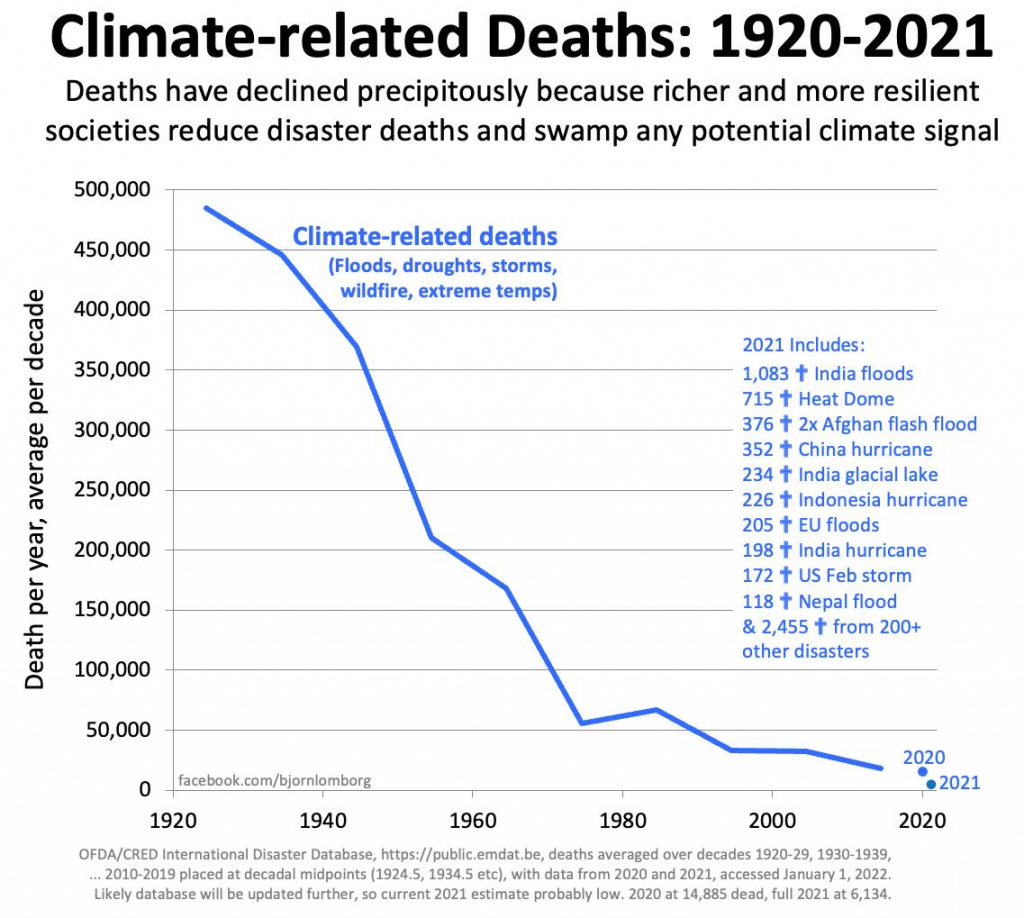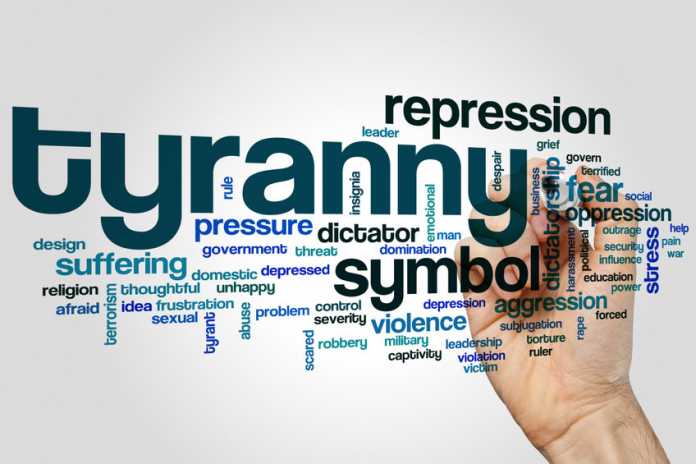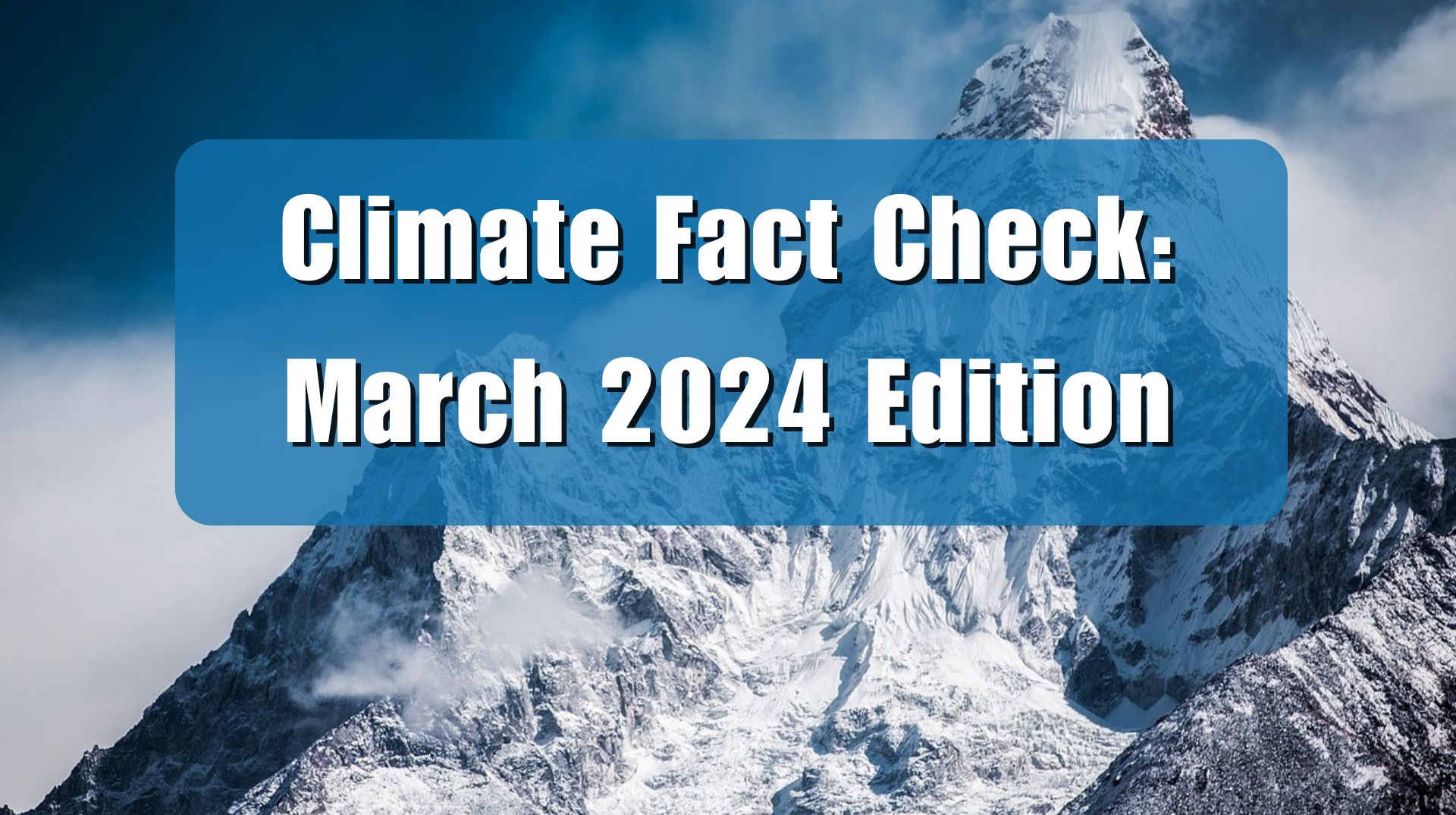A recent paper published by Cambridge University Press titled Political Legitimacy, Authoritarianism, and Climate Change is raising serious and worrisome questions about the role of academia in our national political debate on climate change.
The paper was written by Ross Mittiga, who self-describes as an “assistant professor of political theory at Pontificia Universidad Católica de Chile, specializing in climate ethics.” He also labels himself an “environmentalist, vegan, and occasional gadfly.”
Mittiga’s paper explicitly argues society must prioritize climate action over democratic principles and adopt an authoritarian government if society fails to politically act on climate change. Or, in the words of the political left: “my way or the highway.”
This is disturbing because it completely ignores the will of the people to self-govern, favoring a totalitarian approach in order to tackle what Mittiga deems a “climate crisis.”
Key points of the paper in the abstract:
Is authoritarian power ever legitimate? The contemporary political theory literature—which largely conceptualizes legitimacy in terms of democracy or basic rights—would seem to suggest not. I argue, however, that there exists another, overlooked aspect of legitimacy concerning a government’s ability to ensure safety and security. While, under normal conditions, maintaining democracy and rights is typically compatible with guaranteeing safety, in emergency situations, conflicts between these two aspects of legitimacy can and often do arise. A salient example of this is the COVID-19 pandemic, during which severe limitations on free movement and association have become legitimate techniques of government. Climate change poses an even graver threat to public safety. Consequently, I argue, legitimacy may require a similarly authoritarian approach. While unsettling, this suggests the political importance of climate action. For if we wish to avoid legitimating authoritarian power, we must act to prevent crises from arising that can only be resolved by such means.
The problem with Mittiga’s paper is that he doesn’t offer up a single reference or shred of evidence that a “climate crisis” actually exists. It appears he simply assumes it to be fact-based on the frequency of political discussions that have embraced the term for several years.
If a “climate crisis” actually existed, there would be human impact data to support the claim. Yet, Mittiga cites no such evidence.
However, this lack of evidence did not stop him from making this bold claim: “A salient example of this is the COVID-19 pandemic, during which severe limitations on free movement and association have become legitimate techniques of government. Climate change poses an even graver threat to public safety.” We should be able to test the “graver threat to public safety” that the “climate crisis” supposedly creates.
If the global “climate crisis” was causing public safety to suffer, we’d surely see an increase in global deaths related to supposed climate driven events. To determine if this is true, we turn to data collected by the most trusted global database on events that create mortality, the International Disaster Database.
This database covers all types of natural disasters, including meteorological, hydrological, geologic, and volcanic.
Dr. Bjorn Lomborg has been tracking climate-related disasters from the database since 1920. This includes floods, droughts, storms, wildfires, and extreme temperatures. His conclusion from the data is clear and simple: fewer and fewer people are dying today from supposedly climate-related natural disasters.
As seen in the figure, the trend is clear.

Lomborg writes:
Over the past hundred years, annual climate-related deaths have declined by more than 96%. In the 1920s, the death count from climate-related disasters was 485,000 on average every year. In the last full decade, 2010-2019, the average was 18,362 dead per year, or 96.2% lower.
This is even true of 2021 — despite breathless climate reporting, almost 99% fewer people died that year than a hundred years ago.
Why is this consistently not reported?
In the first year of the new decade, 2020, the number of dead was even lower at 14,885 — 97% lower than the 1920s average.
For 2021, which is now complete, we see an even lower total of 6,134 dead or a reduction since the 1920s of 98.7%.
The media reported on many deadly weather and climate-related catastrophes in 2021 — the deadly US/Canadian heat dome and heat wave, huge wildfires in the Western United States, the December 2021 tornado outbreak in the United States, large-scale flooding in Europe, and the Valentine’s Day winter storm. All of these events and related deaths are included in the disaster database and the graph.
And there are other disasters. Many people in the West never saw media reports of the disastrous floods in India during the monsoon, which killed more than a thousand people. Or the flash floods in Afghanistan, which killed dozens. Or the typhoons that hit China, Vietnam, Indonesia and India, killing a total of 776 people. The database also has more than 200 other catastrophes in 2021.
There is a known bias in the database where there is much more reporting on heat deaths, but recent science from the prestigious medical journal The Lancet reports that globally, cold deaths outweigh heat deaths 9:1, suggesting that “global warming” isn’t as big a problem for human mortality as we’ve been told.
The number of reported weather disaster events is increasing, but that is mainly due to better reporting, and better accessibility, i.e., the 24/7/365 CNN effect. Just because such events are reported more today doesn’t translate directly to more events resulting in more deaths. In fact, the opposite is observed in the data.
Illustrated by the mortality data portrayed in the figure, it is simply incontrovertible that disaster-related deaths have declined, and have done so dramatically. This is because our wealthier, technologically advanced, and more resilient societies are much better able to warn for such events, protect their citizens, and mitigate damage and deaths. In fact, recent peer-reviewed science demonstrates a “decreasing trend in both human and economic vulnerability is evident.”
So, I ask, where is the so-called “climate crisis” that is portrayed as a certainty by Mittiga in the Cambridge University Press?
According to the disaster database, there isn’t any “climate crisis” at all. In fact, during the 40 plus years of modest warming during which we have been told that global warming aka “climate change” will worsen the human condition, mortality has improved dramatically.
Sadly, and frighteningly, as illustrated by Mittiga in the Cambridge University Press the green socialist left is increasingly embracing tyranny in the form of authoritarian power to act on their viewpoint on climate change. But clearly, real-world data don’t support their viewpoint let alone their call to action.















